News
Trump immunity claim in election interference case heard by Supreme Court
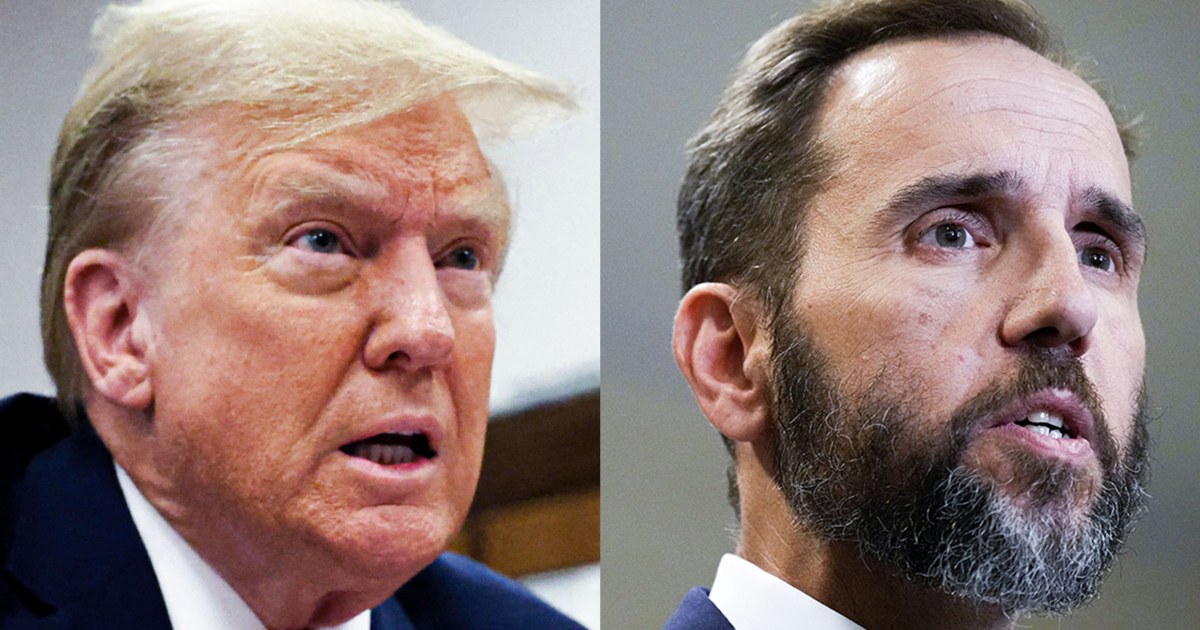
WASHINGTON — The Supreme Court docket indicated Thursday that any trial in former President Donald Trump’s election interference case is unlikely to happen any time quickly, with justices expressing concern about whether or not sure presidential acts must be off-limits.
Though the courtroom seems prone to reject Trump’s expansive declare of absolute immunity, it might remand the case for additional proceedings, making it much less probably {that a} trial would happen earlier than the election.
The courtroom is weighing the novel authorized query of whether or not a former president may be prosecuted for what Trump’s attorneys say had been “official acts” taken in workplace, although a lot of the main target stays on whether or not the justices will rule rapidly so a trial can happen earlier than the November election.
With most authorized consultants questioning Trump’s broad argument that the whole election interference indictment must be dismissed primarily based on immunity, the courtroom’s eventual ruling on the extent to which official acts are protected and the way rapidly it guidelines will likely be of equal significance. Trump’s legal professionals concede that any actions that aren’t deemed to be official acts might be topic to prosecution.
Whereas the courtroom’s three liberal justices appeared most sympathetic to prosecutors, the courtroom’s conservatives appear to have differing views on the scope of presidential immunity, making it unclear precisely how the courtroom will rule.
A number of justices raised considerations concerning the broad implications for future presidents, with most steering away from discussing the precise allegations in opposition to Trump.
“If an incumbent who loses a really shut, hotly contested election is aware of that an actual chance after leaving workplace isn’t that the president goes to have the ability to go off right into a peaceable retirement however that the president could also be criminally prosecuted by a bitter political opponent, will that not lead us right into a cycle that destabilizes the functioning of our nation as a democracy?” conservative Justice Samuel Alito requested.
Justice Brett Kavanaugh, a fellow conservative, expressed comparable considerations, citing the now-lapsed system wherein unbiased counsels investigated presidents as a nasty precedent. Kavanaugh was a part of the group that investigated President Invoice Clinton within the Nineties however has since been important of the method.
“The priority going ahead” is that when former presidents are topic to prosecution, “it is not going to cease,” he stated.
Justices typically appeared skeptical of the argument that blanket immunity would apply to a former president. Justice Amy Coney Barrett — a Trump nominee — was amongst those that zeroed in on what kind of conduct Trump’s legal professionals maintained had been non-public acts or official acts.
Barrett learn a number of of the allegations within the indictment concerning the involvement of personal actors outdoors the federal government to Trump’s lawyer, D. John Sauer, and requested whether or not they had been official or non-public acts.
One such allegation, she stated, was that Trump spoke to “a non-public lawyer who was prepared to unfold knowingly false claims of election fraud to spearhead his challenges to the election outcomes,” which seemed to be a reference to Trump ally Rudy Giuliani.
Sauer conceded that such conduct was a non-public act, which might not be topic to immunity.
Michael Dreeben, the Justice Division lawyer arguing on behalf of particular counsel Jack Smith, stated in response to a later query from Barrett that it might be potential to proceed with the prosecution even when official acts had been omitted.
A number of justices additionally talked about a separate civil case introduced in opposition to Trump over his actions main as much as Jan. 6, 2021, wherein an appeals courtroom panel analyzed the excellence between official and personal acts in additional element.
Mentioning that case suggests the courtroom would possibly ask for the same evaluation within the felony case. Chief Justice John Roberts specifically appeared annoyed that the decrease courts within the felony case had not made any findings about whether or not the alleged acts could be official.
“What considerations me is, as you already know, the courtroom of appeals didn’t get right into a targeted consideration of what acts we’re speaking about or what paperwork we’re speaking about,” he stated.
The case places appreciable scrutiny on the courtroom, which has a 6-3 conservative majority that features three justices Trump appointed. The courtroom already handed Trump an election-year increase when it dominated final month that Colorado couldn’t kick him off the poll.
The justices have additionally come underneath criticism for his or her delay in taking over Trump’s attraction, which some view in itself as a victory for him.
At a minimal, nonetheless, the courtroom appears poised to not undertake Trump’s broadest arguments, which Sauer stated in courtroom underneath questioning from liberal Justice Elena Kagan might immunize such acts as ordering the navy to conduct a coup.
Liberal Justice Ketanji Brown Jackson stated, “Once we’re speaking about felony legal responsibility, I do not perceive how the president stands in any totally different place with respect to the necessity to observe the regulation as he is doing his job than anybody else.”
Trump prefaced the listening to with a publish on his social media website Thursday morning that echoed an argument in his courtroom temporary, which stated denying a president immunity would open him as much as “extortion” from political opponents to pressure him to satisfy their calls for or threat prosecution.
“If a President doesn’t have IMMUNITY, he/she will likely be nothing greater than a ‘Ceremonial’ President, not often having the braveness to do what needs to be accomplished for our Nation,” Trump wrote.
The Supreme Court docket introduced Feb. 28 that it might hear the case, saying it might study “whether or not and if that’s the case to what extent does a former president get pleasure from presidential immunity from felony prosecution for conduct alleged to contain official acts throughout his tenure in workplace.” The choice instantly put the prospect of a pre-election trial in jeopardy.
A federal appeals courtroom had dominated Feb. 6 that Trump was not immune from prosecution, writing that “former President Trump has turn into citizen Trump, with all the defenses of every other felony defendant,” and that whereas govt privilege might have protected him throughout his presidency, it not protected him in opposition to prosecution.
Underneath the unique schedule laid out by U.S. District Decide Tanya Chutkan, Trump’s trial had been set to start March 4, and the jury may need even reached a verdict by this level. As a substitute, the primary of the 4 felony circumstances in opposition to Trump to go to trial was the prosecution introduced by Manhattan District Legal professional Alvin Bragg in New York, the place Trump was indicted on 34 counts of falsifying enterprise information tied to hush cash funds within the lead-up to the 2016 election. He has pleaded not responsible to all costs.
The federal indictment returned by a grand jury in Washington in August consisted of 4 counts: conspiracy to defraud the US, conspiracy to impede an official continuing, obstruction of and try to impede an official continuing, and conspiracy in opposition to rights. The Supreme Court docket has already heard arguments in one other Jan. 6 case that would have an effect on two of the fees in opposition to Trump involving obstruction of an official continuing.
Trump, in accordance with the indictment, conspired to “overturn the reliable outcomes of the 2020 presidential election through the use of knowingly false claims of election fraud to impede the federal government operate by which these outcomes are collected, counted and licensed.”
The indictment focuses on Trump’s involvement in a scheme to submit faux election certificates to Congress within the hope that they’d nullify President Joe Biden’s victory. The chain of occasions culminated within the riot on the U.S. Capitol on Jan. 6.
Trump says he was merely expressing his considerations, which weren’t primarily based on any proof, that the election was plagued with fraud. He has pleaded not responsible to the federal costs.
Whereas quite a few Jan. 6 defendants have acknowledged that they had been duped and manipulated or that they lacked the important pondering expertise to acknowledge the lies concerning the 2020 election for what they had been, Trump and his legal professionals have insisted that he sincerely believed the election was stolen.
Even when the courtroom dominated rapidly, a trial isn’t anticipated to start out till not less than three months after a choice and will take as much as 12 weeks, leaving little time for a decision earlier than the election.
-
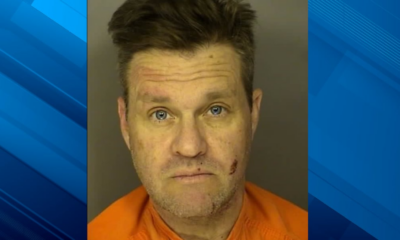
 News4 weeks ago
News4 weeks ago‘Home Improvement’ star out on bond after arrest in Myrtle Beach
-
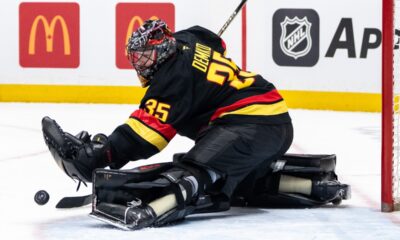
 News4 weeks ago
News4 weeks agoCanucks’ Thatcher Demko leaves game vs. Kraken with back spasms
-

 News4 weeks ago
News4 weeks agoHeat suspend Jimmy Butler for 7 games for ‘conduct detrimental to the team’
-
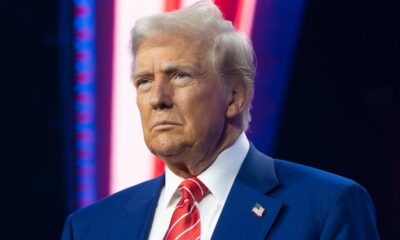
 News3 weeks ago
News3 weeks agoTrump takes office – NBC New York
-
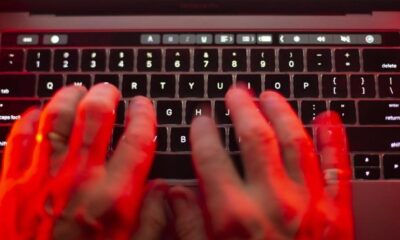
 News3 weeks ago
News3 weeks agoCanadian school boards among those affected by cyber incident involving third party
-
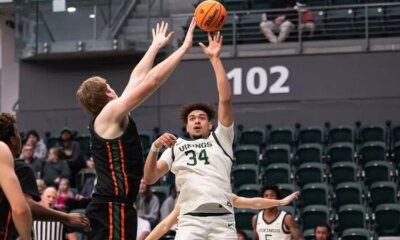
 News3 weeks ago
News3 weeks agoVikings Open Big Sky Home Schedule Thursday Against Eastern Washington
-
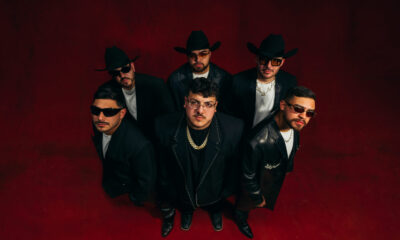
 News3 weeks ago
News3 weeks agoHere’s the 2025 Houston Rodeo lineup – Houston Public Media
-

 News3 weeks ago
News3 weeks agoLos Angeles Mayor Karen Bass under fire for response to raging wildfires
